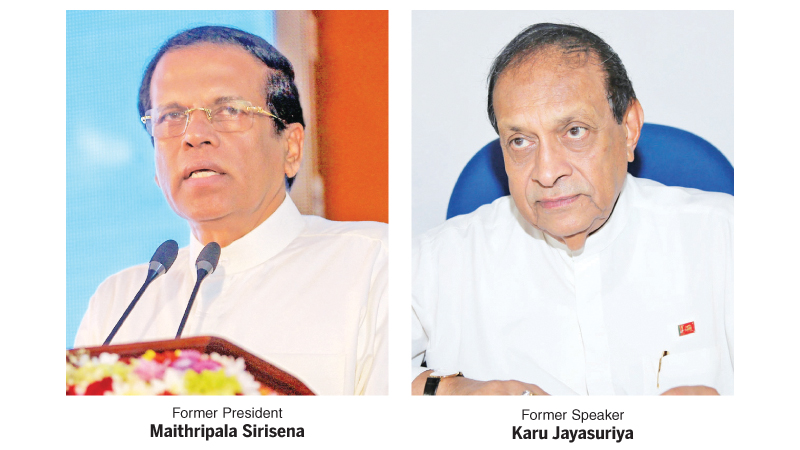This article too will look at Local Government, and how to make it more responsive to the needs of the people, instead of just being a vehicle for the ambitions of politicians. The majority think of Local Government as being simply a stepping stone to higher things, and if they do achieve anything it is with a view to popularity to develop their careers.
But what they do should be done rather by the administration, which should look after the provision of services to the people. Maithripala Sirisena’s manifesto envisaged this, but I was wrong in assuming that he understood his own manifesto. Karu Jayasuriya I suspect understood, but when I suggested he moved on the reforms that had already been proposed to the previous Minister of Public Administration, and set aside when the silly election started, Karu claimed that he could do nothing because the Prime Minister would not allow him to.
In order to preclude hijacking of services by those who deliver them selectively in their own interests, I suggest that local authorities too should be entrenched in the constitution.
 Elections are a democratic way of life |
I provide too for entrenchment of consultation processes, through committees set up through the grassroots, not simply nominated by the elected representatives as was envisaged in the abortive effort at reform a decade back, when I told the Minister who asked me for advice, Mr.Athaullah, of the need for more sweeping reforms. But nothing came of that as nothing came of the several commitments to reform Mahinda Rajapaksa had pledged before he became President.
Powers of Local Authorities
163 (1) Provincial Councils may not take away from powers conferred upon Local Authorities, which shall continue to exercise powers conferred on them through the relevant Acts with regard to social services and social amenities. Parliament shall provide by law for the entrenchment of those powers along with a new Act that clarifies the status of such authorities. That Act will limit the number of members of such authorities to half or below half the current number with effect from the next election to such authorities, and shall provide for such elections to be held every four years.
164 Every local authority shall elect by STV three members to chair committees for
a) Social Services and Amenities
b) Protection
c) Finance
The person first elected shall be the Chairman of the Council and chair whichever he chooses of the first two Committees, allocating the other to the second person elected. The third person elected will chair the Finance Committee. Other members of the Council shall divide themselves into membership of the three committees on an equal basis, with the decision made by lot if agreement cannot otherwise be reached. The Finance Committee shall exercise oversight on the funds of the Council, and make recommendations for adoption as appropriate by the full Council.
The Chairs of the first two Committees will work through the Divisional Secretary to ensure that social services and amenities are provided in the areas set out in the 4th Schedule to the constitution and in Local Government Acts, and that provision is made for care and protection of women and children and the vulnerable.
(2) The Chairs and Committees of any Local Authority shall work together with consultative committees set up in every Grama Niladhari Division. Such committees shall consist of six representatives in addition to the Grama Niladhari. The Ministry of Public Administration may lay down categories to choose representatives, but at least three shall be women, and at least two including one woman under the age of 30. They shall be elected at a meeting of all electors in a GN Division at which all electors shall have one vote each. The six nominees getting the highest number of votes and conforming to the requirements above shall constitute the committee. The Committee shall meet at least twice a month and be chaired by the Grama Niladhari.
(3) The Divisional Secretary shall allocate an official in his Secretariat responsible for service delivery to liaise with each GN Division and attend its consultative committee meetings. Such official shall convey the requirements of the Division in each service area to the responsible official in the Secretariat.



Add new comment